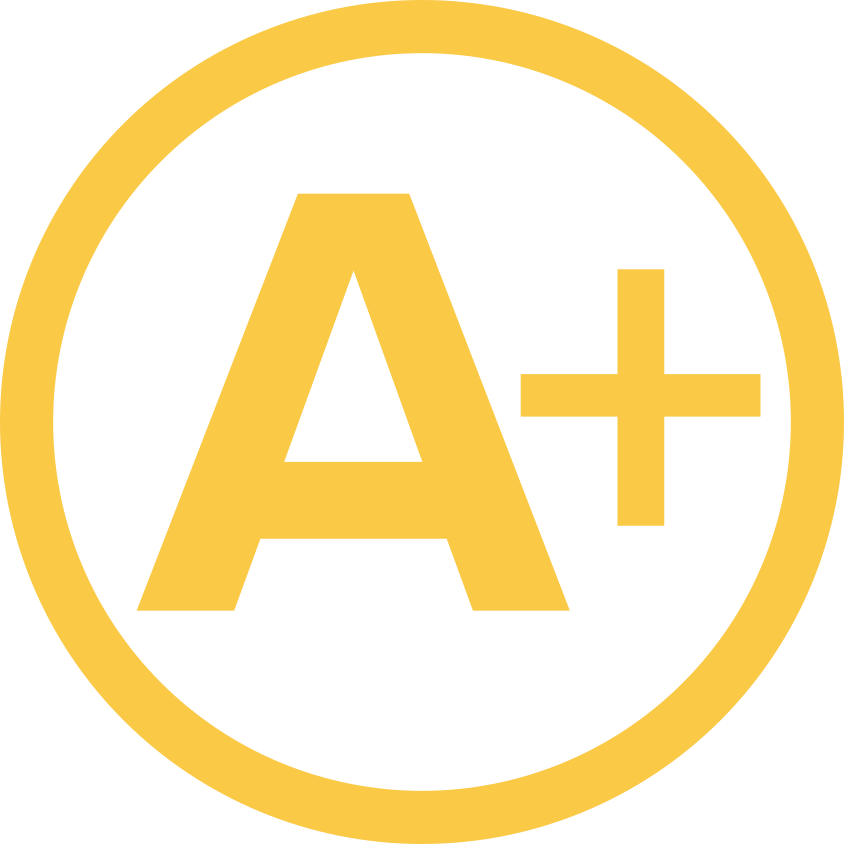RESIDENTIAL FAQs
Frequently Asked Questions
House Washing
Roof Washing
- What causes the black stains and streaks on my roof?
- Do the black streaks on my roof cause damage?
- What is roof washing?
- What chemicals are used in roof washing?
- Are roof-washing chemicals safe?
- Is it safe to pressure wash my roof?
- Is roof washing necessary?
- Is roof washing a good idea?
- How much does roof washing cost?
- Is roof washing work safe?
Driveway Cleaning
- What is the black staining on my driveway?
- How do you remove the black stains on my driveway?
- What is pre-treating on a driveway?
- What is post-treating on a driveway?
- How much does driveway cleaning cost?
- Will a pressure washer remove rust?
- How long will my driveway remain clean?
- Does your driveway cleaning service come with a warranty?
HOUSE WASHING
What is house washing?
House washing is the process of removing mold, mildew, dirt, grime, and oftentimes rust, efflorescence, oxidadtion, and soot from a home's exterior surfaces by using a combination of low to moderate water pressure and specialized detergents, algaecides, acids and surfactants.
HOUSE WASHING
How much does house washing cost?
While the cost of house washing can vary by region and vendor, it typically averages between .10 cents and .25 cents per square foot. Factors that are considered when pricing a house wash could include things like the number of stories, types and condition of surfaces, and the severity of the stains and discoloration that need to be removed. Cost may also reflect the inclusion of additional services such as gutter brightening, high chimneys, as well as trouble areas requiring specialized treatment like rust, soot, efflorescence, and oxidation removal.
HOUSE WASHING
What psi is used in house washing?
The most common pressure used in house washing is around 90-150 psi and should never exceed 300 psi. A general rule of thumb is that if you can't place your hand in the stream then the pressure is too high. While there are exceptions to this rule; such as when washing some brick, stone or concrete surfaces for example - proper house washing is generally accomplished using a soft wash method where the cleaning solution, and not pressure, is the chief mechanism of the cleaning process
HOUSE WASHING
Is power washing bad for my house?
Power washing is a generic term that is commonly used to describe any one of the typical methods used to wash a house exterior. None are "bad" of themselves. In fact, when done properly, they are all very effective. What makes a specific method "bad" is its execution and inproper application. For example; 'pressure washing' - which uses high pressure, if applied incorrectly can damage building surfaces and force water into the interior walls and spaces not meant to store moisture. The other most common form of power washing is 'soft washing' - which uses chemicals rather than pressure. This, too, can damage surfaces and kill vegetation if applied incorrectly. Alternatively, both methods are extremely safe and effective when applied to the right surfaces, using the proper strength, at the right time.
HOUSE WASHING
Will power washing a house hurt plants?
A:
Not if done by experienced professionals. That being said, 'soft washing' uses chemicals that can damage plants if the right precautions are not taken. The most common chemical used in soft washing is sodium hypochlorite (bleach). When applied at a rate of more than 1.5-2%, extra care must be taken to protect surrounding vegetation. This is done by pre-wetting leaves, saturating roots, and/or covering the plants with a breathable moisture barrier such as Tyvek. Further precautions include applying a bleach neutralizer before and after cleaning the adjacent surfaces.
HOUSE WASHING
What chemicals are used in house washing?
The most common chemicals used in house washing are sodium hypochlorite and soap. Sodium hypochlorite; otherwise known as bleach, is used for its algaecidal properties, and soap for its surfactant properties. Bleach kills most all stain-causing organic material while surfactant keeps the cleaning solution wet longer allowing it to remain in contact with the surface being treated. In roof cleaning, surfactant also slows runoff by creating a more "sticky" cleaning solution.
HOUSE WASHING
When is the best time to wash my house?
The best time to wash your house is the instant you notice organic material appearing on the surfaces. In Texas, this usually appears as a green or black stain on the north and east sides of your house, as well as those areas with significant shade or little to no UV exposure from the sun. These stains signal the growth of organic colonies - the most common of which is Gloeocapsa magma. Treating these areas with a solution of 1.5% to 2% sodium hypochlorite will instantly eradicate all blooms and spores.
HOUSE WASHING
Will house washing damage the paint?
House washing will not of itself damage paint. However, some paints are reactive to bleach - most notably among these is Sherwin Williams Organic paint. Always test for reaction prior to spraying any painted house surface.
ROOF WASHING
What causes the black stains and streaks on my roof?
The main cause of black streaks and stains on roofs is from a bacteria called Gloeocapsa magma. This bacteria feeds on the limestone and moisture found in asphalt shingle roofs. Over time they accumulate and create a dark outer coating, thus creating a black appearance. As the bacteria spreads, gravity pulls it downward, creating a smear-like stain.
ROOF WASHING
Do the black streaks on my roof cause damage?
Yes. This is because the bacterial colonies feed on the limestone, hold moisture and cause premature aging, rotting, and/or granule loss of the shingles.
ROOF WASHING
What is roof washing?
Roof washing is the process of removing organic material from roof shingles or tiles by applying algaecides and surfactants at low pressure - typically in the range of 90-150 PSI.
ROOF WASHING
What chemicals are used in roof washing?
The most common chemicals used in roof washing are sodium hypochlorite (aka, bleach) and soap. Sodium hypochlorite; otherwise known as bleach, is used for its algacidal properties, and soap for its surfactant properties. Bleach kills most all stain-causing organic material while surfactant keeps the cleaning solution wet longer allowing it to remain in contact with the surface being treated. In roof cleaning, surfactant also slows runoff by creating a more "sticky" cleaning solution.
ROOF WASHING
Are roof-washing chemicals safe?
All chemicals are biodegradable. However, care must be taken to protect plants from overspray and run-off. This is done by soaking all plants before and after treatment, and by "bagging" all downspouts to capture all chemicals.
ROOF WASHING
Is it safe to pressure wash my roof?
No. Under no circumstances should high pressure be applied to roof shingles.
ROOF WASHING
Is roof washing necessary?
Roof washing can extend the life of your roof shingles by eradicating the bacteria that feeds on the limestone in your asphalt shingles.
ROOF WASHING
Is roof washing a good idea?
Roof washing is a good idea when done properly to extend the life of your roof, reduce the amount of heat that's absorbed into the surface, and to improve the overall curb appeal of your home.
ROOF WASHING
How much does roof washing cost?
The cost of roof washing typically ranges between .20 to .50 cents per square foot and is based on roof pitch, type and extent of bacterial infestation, degree of chemical run-off management required, and accessibility to the surfaces that need treatment.
ROOF WASHING
Is roof washing work safe?
As with any work done at height, roof washing is a dangerous job. All safety precautions must be strictly adhered to by the roof-washing technicians to prevent injury or death.
DRIVEWAY CLEANING
What is the black staining on my driveway?
The black staining that develops over time on concrete driveways is a bacteria called Gloeocapsa magma. This is the same bacteria that feeds on the limestone and moisture found in asphalt shingle roofs. Over time, colonies of these bacteria accumulate and create a dark protective outer coating. And this is what creates the black appearance.
DRIVEWAY CLEANING
How do you remove the black stains on my driveway?
To remove the black staining from your driveway, we apply a coating of algaecide that kills the bacteria, including all of the undeveloped spores that are the cause of the black appearance. After allowing the algaecide to remain on the surface for at least 5 to 15 minutes, we follow-up with our high-pressure surface cleaners to remove the stains.
DRIVEWAY CLEANING
What is pre-treating on a driveway?
Pre-treating a driveway is the process of applying a chemical solution prior to applying high-pressure surface cleaners. The type of solution used is determined by the stain and the type of surface being cleaned. The most common solution used for cleaning concrete driveways in Texas is a mixture of algaecide with a surfactant. The algaecide eradicates organic matter while the surfactant reduces evaporation to allow the chemicals to cling to the surface longer.
DRIVEWAY CLEANING
What is post-treating on a driveway?
Post-treating a driveway is the process of applying a chemical solution to the surface after high-pressure surface cleaners have washed the surface. The most common solution used for post-treating concrete in Texas is a 2-4% solution of water and sodium hypochlorite. This solution brightens concrete surfaces as they are naturally exposed to the UV light from the sun. The most noticeable result is a cleaner appearance. But more importantly, post-treating eradicates any remaining organic spores, thus keeping the surface algae-free for up to 2 years - depending on environmental variables.
DRIVEWAY CLEANING
How much does driveway cleaning cost?
Pricing for driveway cleaning varies from company to company. We price most typical driveways by "sections" and "squares". That is, driveways and sidewalks are made up of rectangular sections of concrete separated by an expansion joint. For atypical driveways that don't have "sections", we price these by the square foot. The type of surface and the extent of cleaning required will further define the cost. For more details, please see Driveway Pressure Washing.
DRIVEWAY CLEANING
Will a pressure washer remove rust?
No. Rust removal requires a special chemical treatment. It cannot be removed with a pressure washer. We offer this as an add-on service.
DRIVEWAY CLEANING
How long will my driveway remain clean?
Without the proper pre-treatment and/or post-treatment, your driveway will see the return of the black algae in a matter of a few weeks to months - depending on what part of the year it was initially cleaned. Alternatively, WITH the proper pre-treatment and/or post-treatment, you can expect your driveway to remain clean for up to 2 years. Surrounding environmental conditions vary as does the corresponding duration of time between cleanings.
DRIVEWAY CLEANING
Does your driveway cleaning service come with a warranty?
Yes. We include a 1-year limited warranty on most driveway cleaning jobs with an option to extend this to 2 years for a few dollars more. Atypical driveways with unusual environmental conditions may not come with a warranty.

